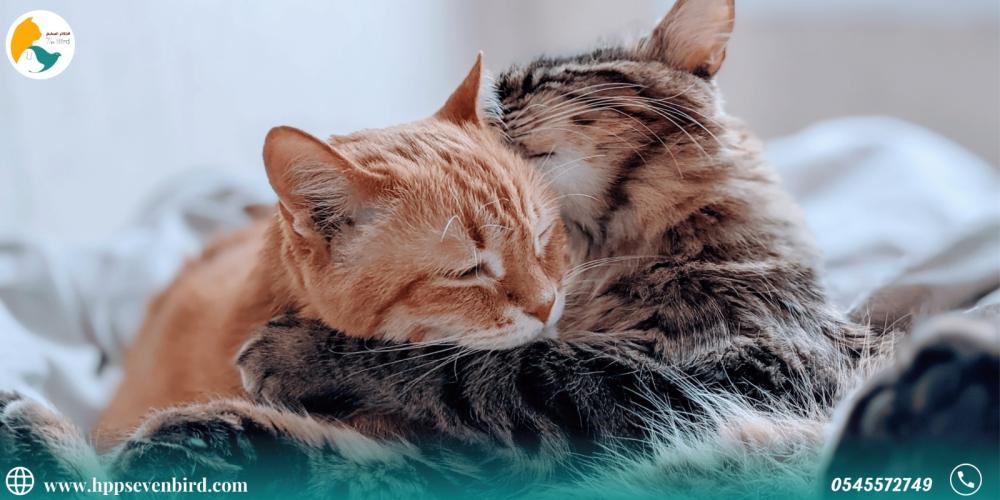If you notice that your cat is not showing any desire to mate despite reaching puberty, this could be due to a variety of factors, ranging from health to behavioral.
:Reasons for failure to mate in cats
Health problems:
Reproductive infections: such as uterine or vaginal inflammation, which causes pain .
Chronic diseases: such as diabetes or kidney disease, which affect fertility.
Congenital defects: such as incomplete reproductive organs.
So we have dedicated to you from the seventh bird:
Josera Help Dry Food for Adult Cats for Weight Control and Diabetes 2kg
Hills Metabolic Dry Cat Food 1.5kg
Dexra Amoxicillin Oral Drops Antibiotic for Dogs and Cats 15ml
Verbac Biomox Amoxicillin Oral Antibiotic for Cats and Dogs 15ml
Inappropriate Age:
Very young cats: Females reach puberty at 6-9 months of age, but mating too early (before 12 months) may expose them to health risks.
Older cats: After the age of 7 years, female fertility declines, and the male (tomcat) may lose interest in mating.
Stress and an unsuitable environment:
Sudden changes: such as moving to a new home or the presence of other animals.
Loud noises: These cause stress that prevents a cat from responding to its mating instincts.
Lack of privacy: Cats need a quiet, safe place to feel secure during mating.
So we have dedicated to you from the seventh bird:
Seven Bird Cat Scratcher and Bed
Seven Birds Fabric Cat House in the Shape of a Cottage 45x40x40 cm
Malnutrition:
Vitamin and mineral deficiencies, such as vitamin E or zinc, are essential for reproductive health.
Obesity or excessive thinness: affects hormone production and the ability to conceive.
So we have dedicated to you from the seventh bird:
Canvit Multi Multivitamin Food Supplement for Cats 100g
Behavioral causes:
Aggression: A female may attack a male if she feels threatened.
Incompatibility: Some cats reject certain mating partners for unclear reasons.
Negative experiences: If the cat experienced trauma during a previous mating.
Genetic factors:
Inbreeding (mating between relatives): causes poor fertility and an increase in genetic diseases.
Certain breeds: Some breeds, such as the Himalayan, are more prone to reproductive problems.
Partial or total sterilization:
Spayed cats: If a cat undergoes spaying surgery, it loses the ability to reproduce.
Surgical errors: In rare cases, the sterilization procedure may fail, and symptoms may not appear until later.
Tips for breeders:
:Tips for breeders
Regular veterinary checkups: to ensure no hidden diseases.
Provide a stable environment: while minimizing stress around the mating date.
Consult an animal behaviorist: if the problem is psychological.
Cats not mating isn't always a cause for concern, but it's important to understand the underlying causes and take appropriate action. Remember that excessive, irresponsible mating can expose cats to health risks, so it's best to consult a veterinarian before making any decisions!

